Market: Retail, Ecommerce
Role: VP of Product & Design
Tags: UX, Product, Retail, Loyalty
Site: www.shukran.com
Shukran is Landmark Group’s flagship customer loyalty ecosystem, serving over 13.9 million active members across six countries. The program was originally a static “earn & burn” model with limited engagement and low differentiation. In 2023, we reimagined Shukran into a tier-based loyalty platform - designed to drive engagement, retention, and cross-brand customer growth.
As VP of Product & UX Design, I led the multi-disciplinary redesign of Shukran 2.0 - a multi-year transformation spanning strategy, design, product management, and analytics. The goal was to create a modern, data-driven loyalty experience that reflected customer value, rewarded engagement, and connected seamlessly across Landmark’s retail and digital ecosystems.
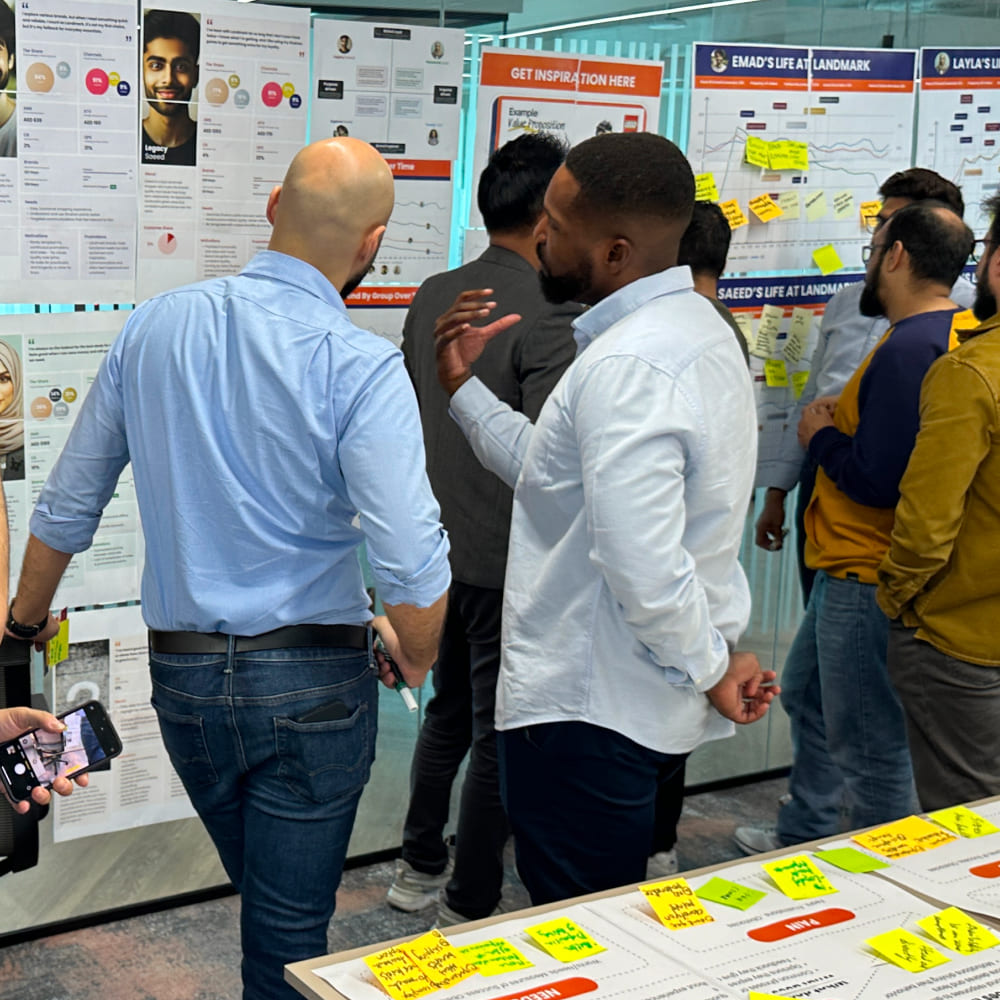
- Led a cross-functional team of 15+ across Product, Design, and Analytics.
- Collaborated with brand CEOs, marketing, and CRM teams to align the loyalty redesign to group-wide business objectives.
- Oversaw the end-to-end experience from research and insight development to product design, UI systems, and post-launch analytics.
- Defined key customer metrics (retention, engagement, cross-shopping, omnichannel adoption) and tied them directly to measurable business impact.
Shukran was a household name, but customer engagement was declining. The program lacked emotional and behavioral incentives beyond basic cashback.
Our key challenge was to elevate Shukran from a transactional tool to a relationship ecosystem, one that recognized and rewarded true loyalty across 20+ retail brands and millions of customers in the region.
We grounded our approach in research, data, and co-creation:
- Conducted 17,000+ customer engagements, including surveys, interviews, and ethnographic sessions across five territories.
- Partnered with data science and analytics teams to map behavioral segmentation and customer lifetime value.
- Developed a new tier framework (Member, Silver, Gold, Platinum), tied to spending and engagement milestones.
- Designed a new experience layer across app, in-store, and marketing touchpoints to reinforce awareness and motivation.
- Introduced localized benefits (e.g., coffee partnerships in Saudi Arabia) to reflect regional differences.
- Deployed Shukran Ambassadors and in-store activations to drive awareness and staff engagement.

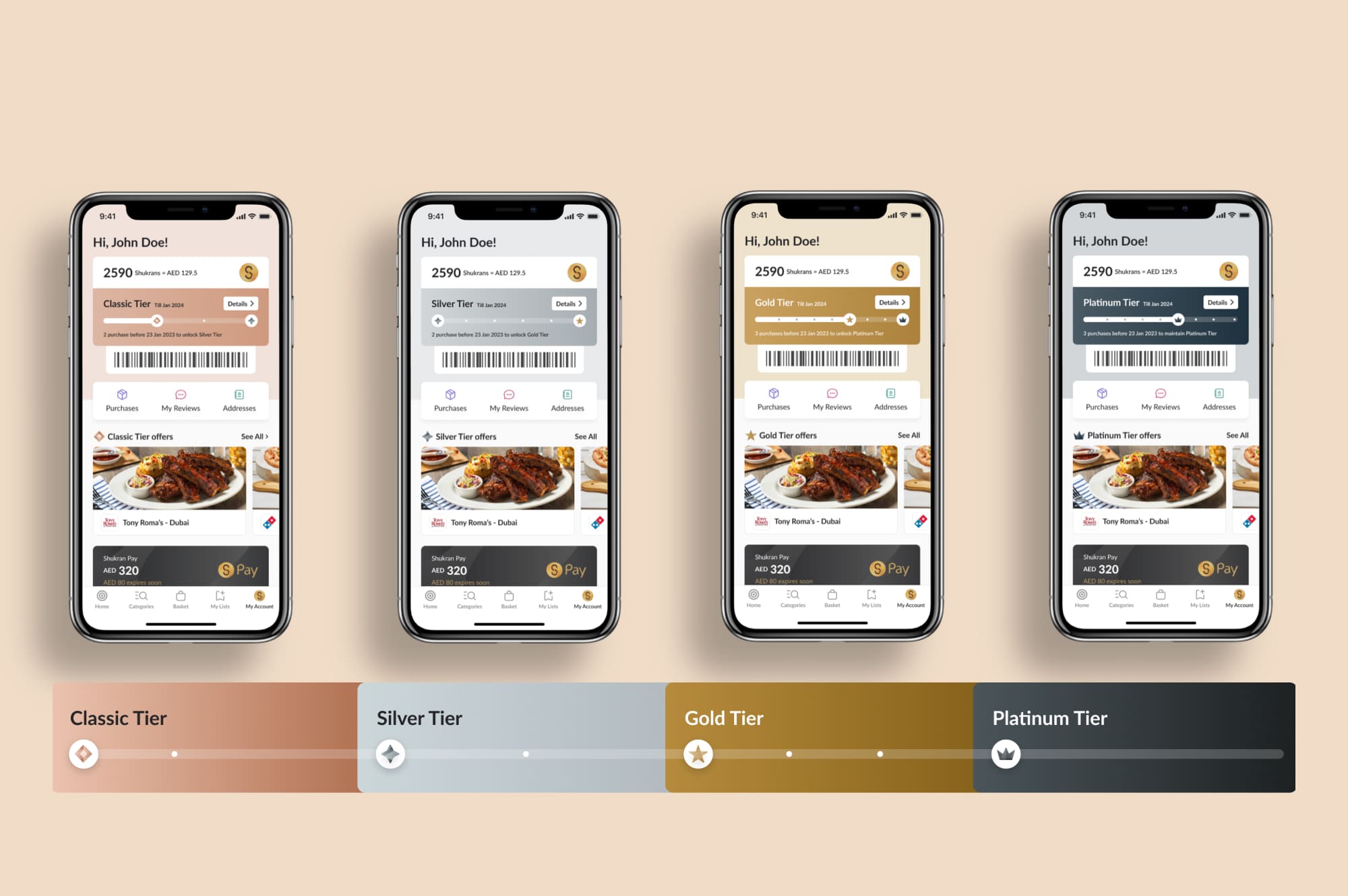
- Transparency: Clear progress indicators showing how close members are to the next tier.
- Recognition: Personalized tier benefits and milestones celebrating loyalty.
- Integration: Unified experience across app, checkout, and in-store environments.
- Motivation: Behavioral nudges and offers tailored by segment and territory.
These principles translated into a modular, scalable experience adaptable across multiple markets and retail concepts.
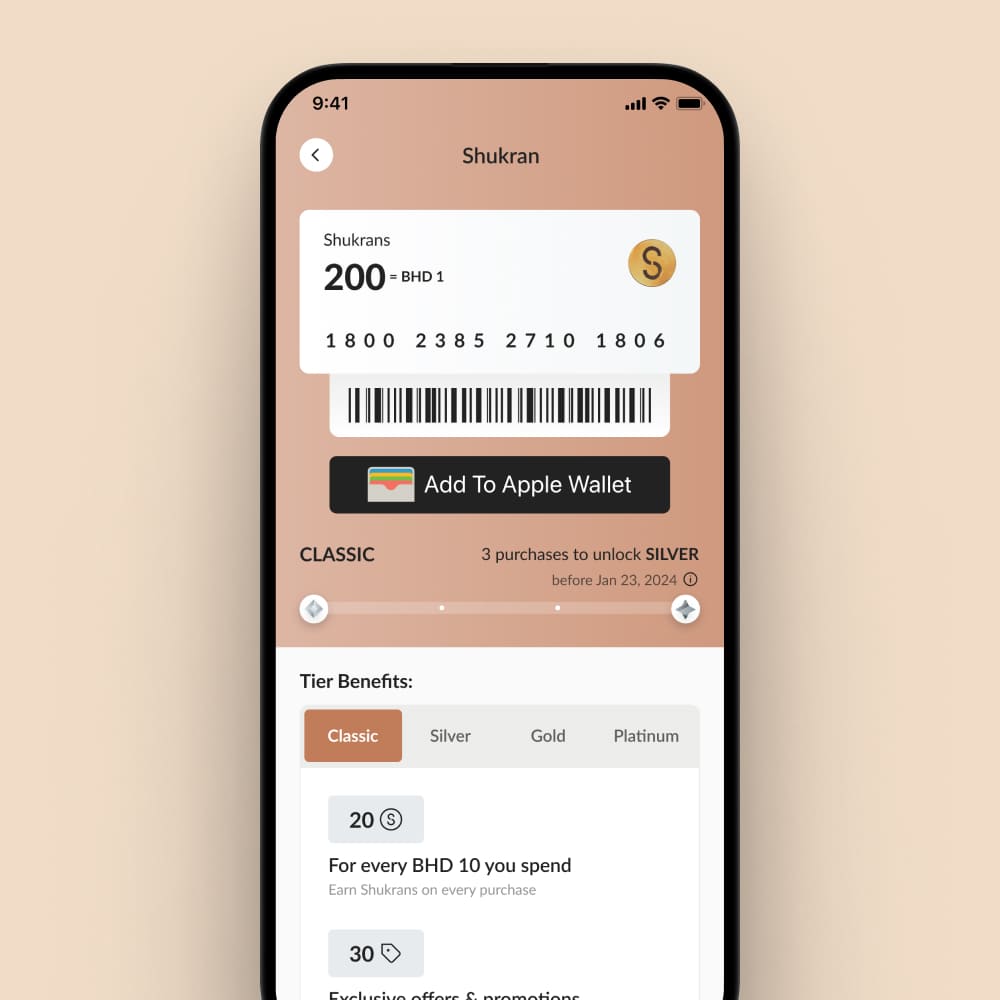
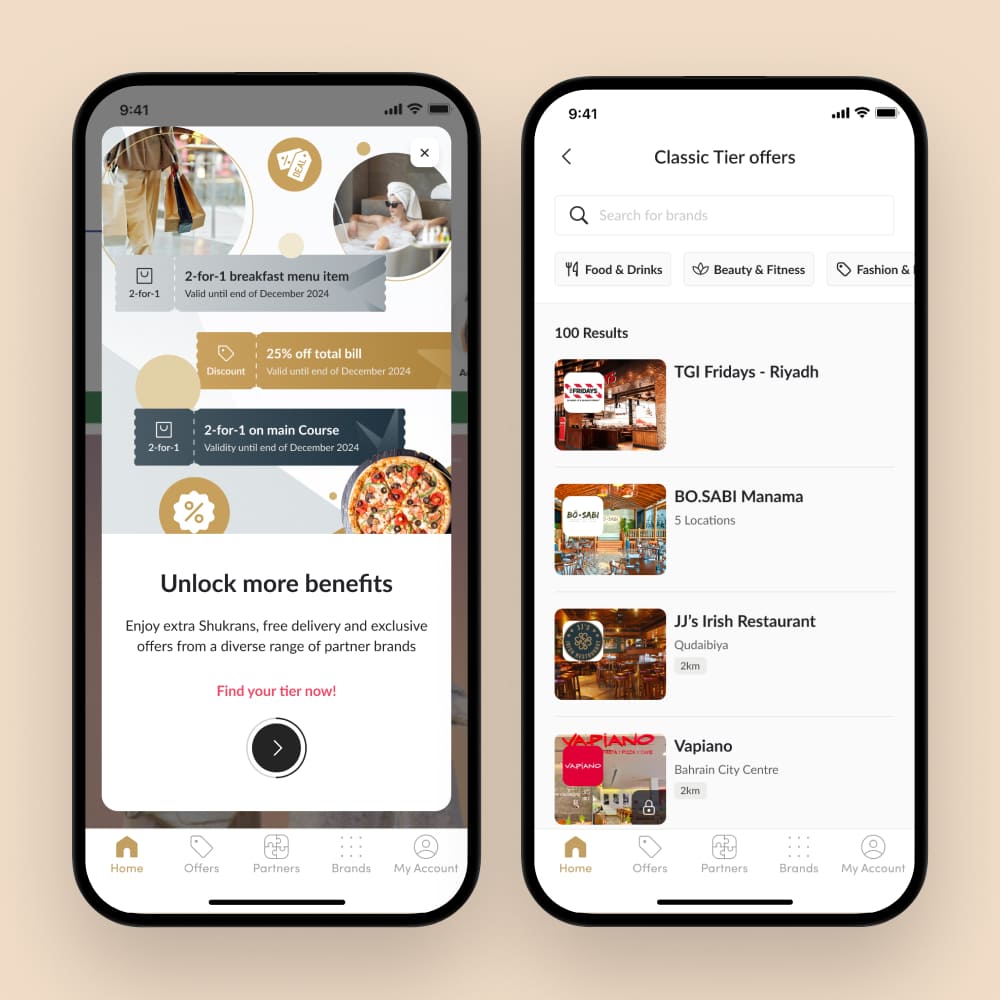

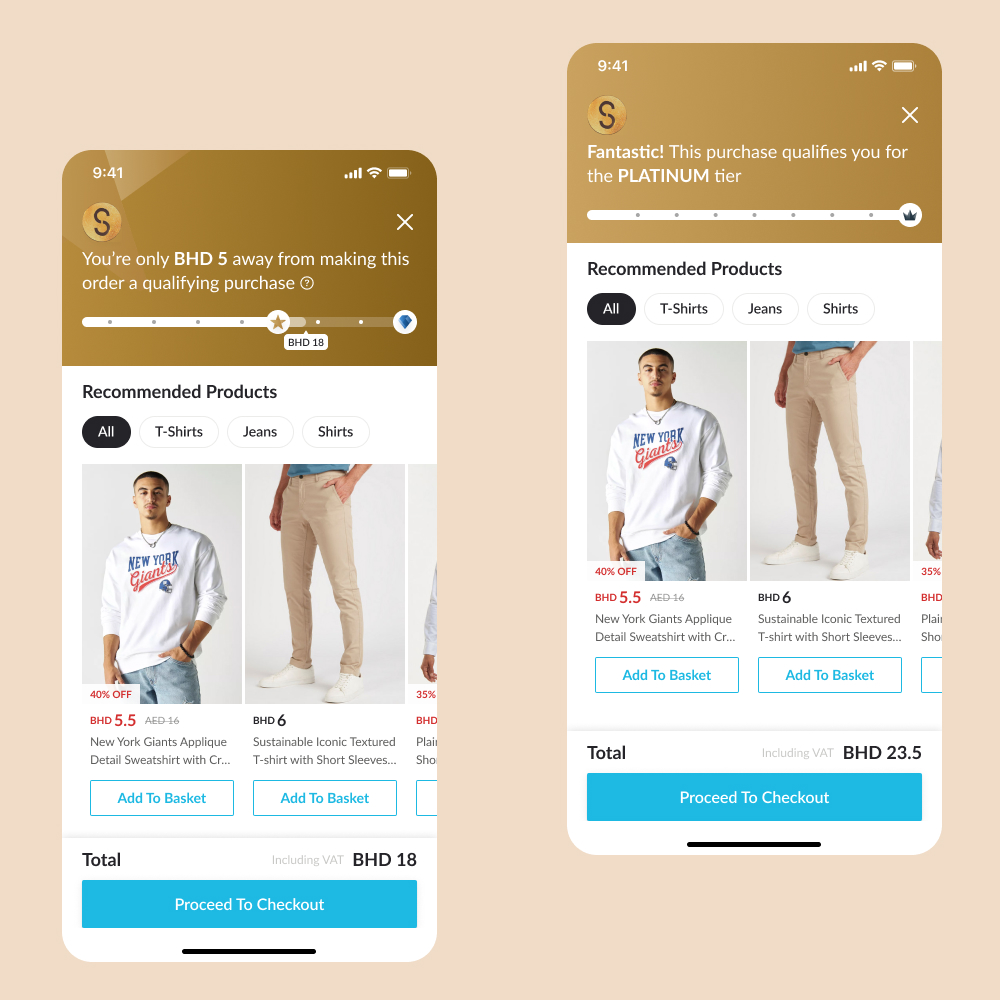
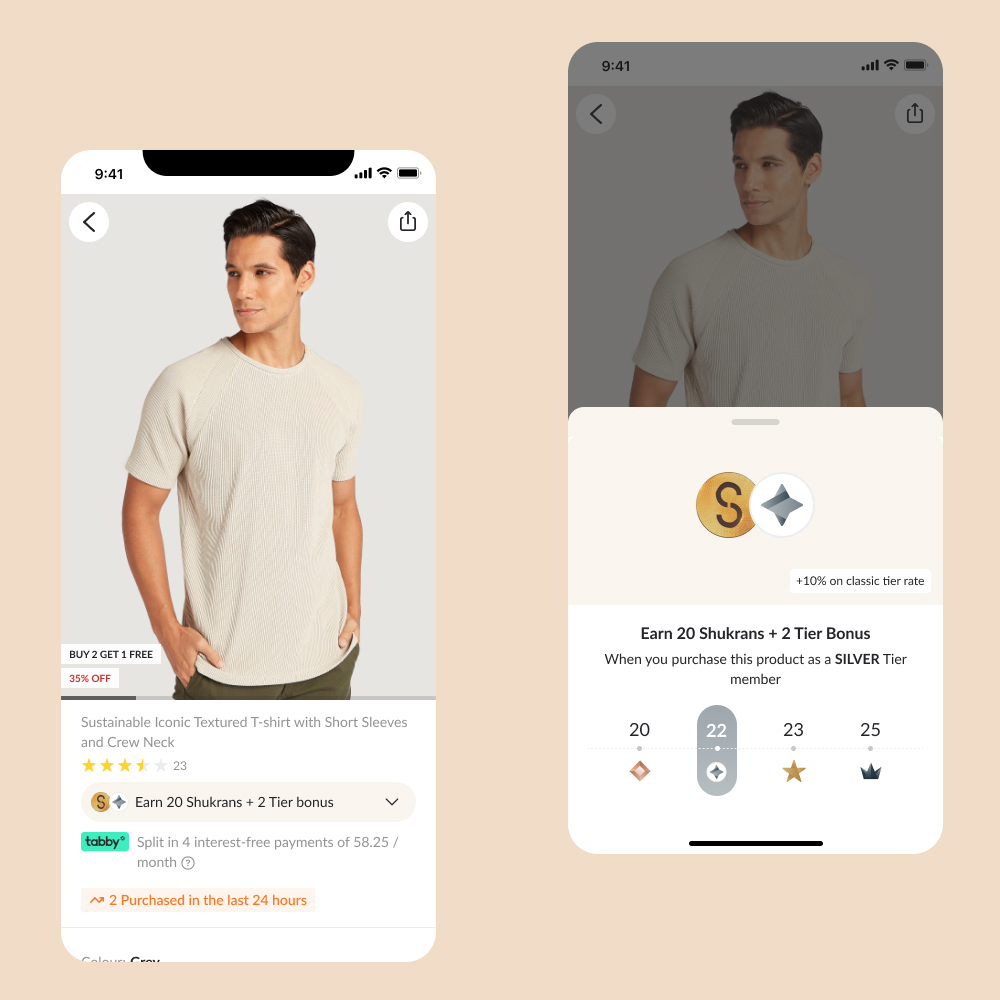
The results within the first 12 months demonstrated the success of the redesign:
million members upgraded to higher tiers within 12 months
revenue uplift among top-tier customers
increase in cross-brand shopping
Percentage Point growth in omnichannel transactions
higher spend from engaged customers
Percentage Point increase in Platinum member retention
- Upgrading customers behave differently: Newly upgraded Platinum members showed +71.5% revenue growth versus +2.4% for retained Platinum members.
- Execution drives success: Markets with trained Shukran Ambassadors and in-store activation outperformed others.
- Visibility matters: Only 20% of surveyed customers were aware of new features — reinforcing the need for stronger communication and operational integration.
- Engagement drives spend: Members interacting with tier benefits spent 65% more, proving that behavioral design and visibility are key.

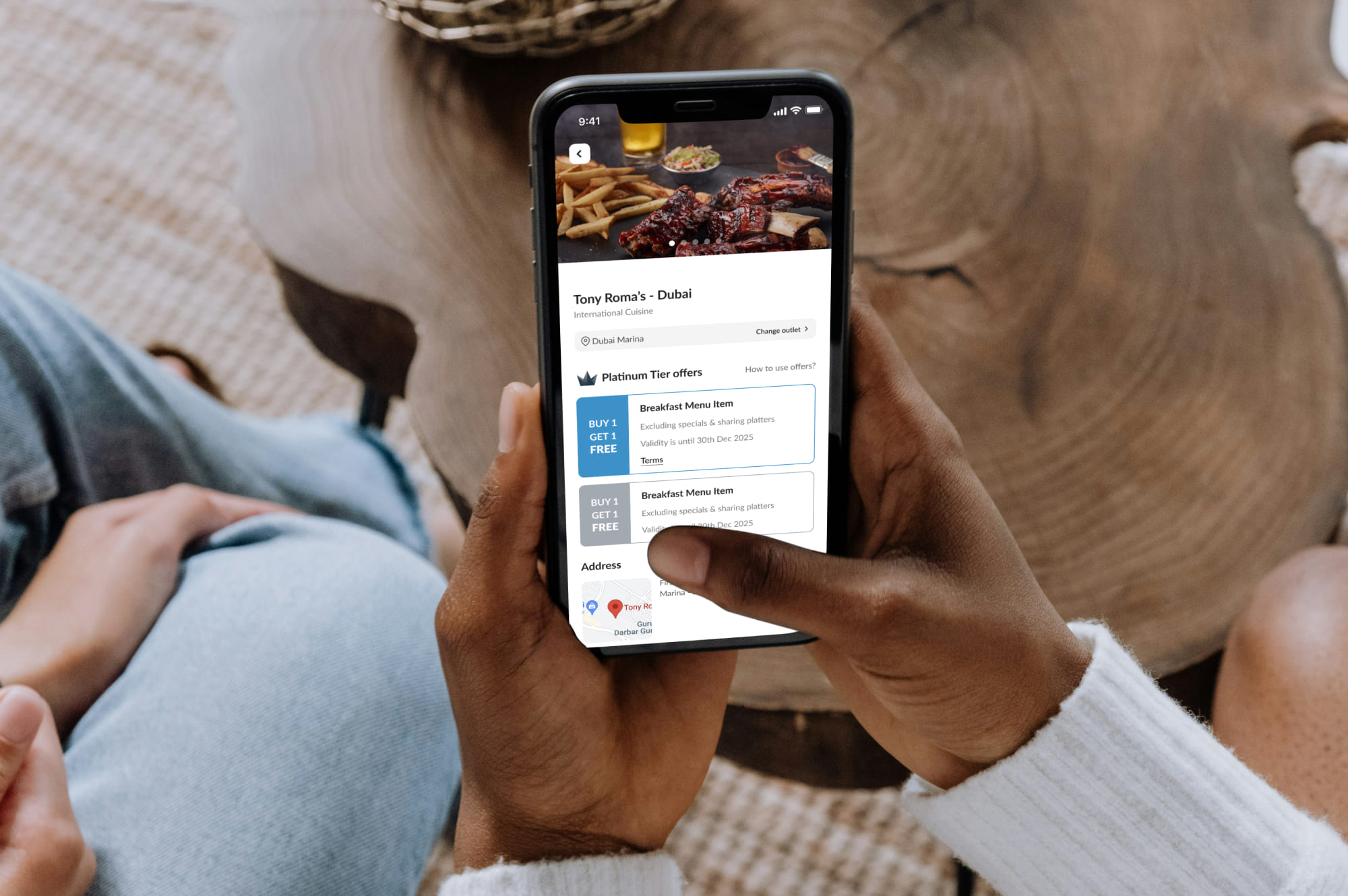
Building on this foundation, the next phase focuses on:
- Enhanced tier benefits for high-value members.
- Localized experiences tailored by region.
- Data-driven personalization across app and CRM.
- A planned brand refresh and expanded design system integration (LDL) for future scalability
The Shukran 2.0 redesign wasn’t just a UX overhaul, it redefined how a retail conglomerate perceives customer loyalty.
It demonstrated that design, data, and strategy can reshape business models, creating experiences that reward both customers and the bottom line.
